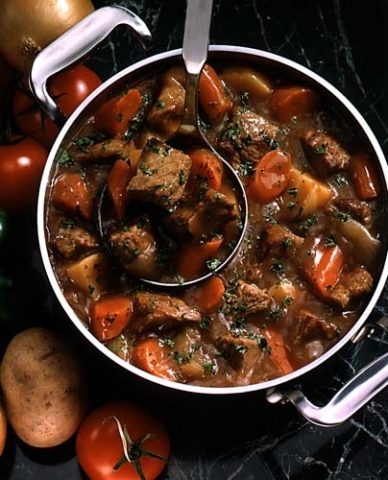
Just like the food we eat, wine comes in a vast array of flavors and styles. What makes each wine unique is the combination of sugars, acid, aroma compounds, tannin, and alcohol. These components, in differing combinations, give each wine its unique character. With so many different wines to choose from, one question continues to haunt family cooks and dinner party hosts: Does cooking with expensive wine or cheaper wine impact the quality of the dish?
What Makes a Wine Expensive or Cheap?
You first have to figure out whether price actually determines quality. Is a more expensive wine better, or is a wine just “better” according to your personal preference? There are three major factors that determine how winemakers and distributors price their wine:
• Production costs: For small producers, their wine price point is dictated by what it costs them to make it. Unlike the larger winemakers, the little guys can’t afford to sell their product for less than it costs to produce.
• Market fit: For the larger producers, on the other hand, price is often determined by where the wine fits in among other wines on the market. Some wines are priced to be competitive, while others are meant to be exclusive.
• Regional differences: The growing region also plays a factor in pricing. Just as labor costs differ according to region, it costs more to grow grapes in certain areas.
Do any of these factors really influence quality? Well, sometimes they do — and sometimes they don’t. Occasionally, it’s just a matter of marketing. An expensive price tag doesn’t necessarily lead one to a better wine. And regardless of price point, there’s no nutritional difference between cheaper and more expensive wines.
The Wine Should Complement Your Dish
The answer to the “which wine is better” debate comes down to personal taste and preference. What’s most important is that the wine matches the dish. For example, boeuf bourguignon is a French dish that was made famous by Julia Child. The beef should be braised in a full-bodied red wine that’s not completely dry to enrich the meat’s natural flavors.
Only compare wines by price if price is a concern. If there is no issue with the cost, experiment as much as possible! Most wine drinkers have a go-to wine that they lean on when they’re devoid of inspiration or faced with a tough choice. Sometimes, trying a new dish for dinner can inspire you to try a new type of wine.
Discover the flavors and aromas that you enjoy in a wine, and take note of how well they work with some of your more common dishes. When you take the time to be adventurous, you’ll discover flavor palates you may not have imagined before……..
See full story on dumblittleman.com
Image courtesy of dumblittleman.com
